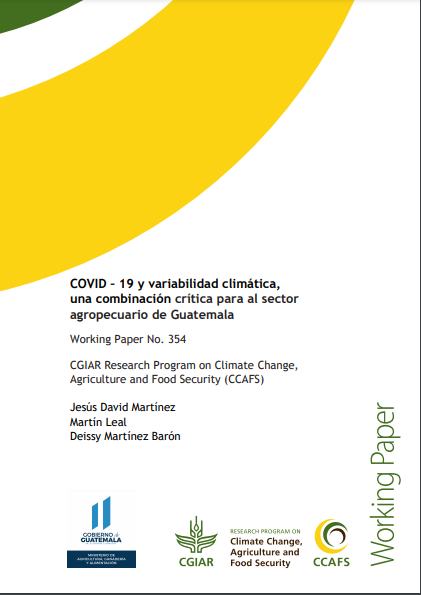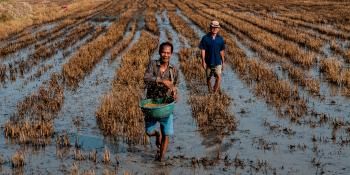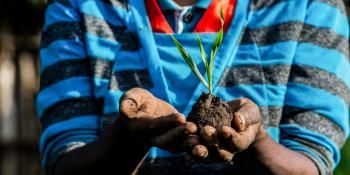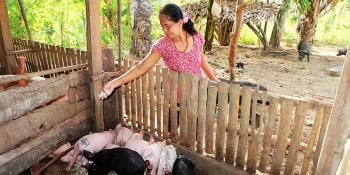Impact of COVID-19 on Guatemala's Agriculture Sector

 Click here to read the full publication (Only available in Spanish) |
CCAFS explored the impact of COVID-19 restrictions on Guatemala's food production systems.
The closures and safety measures adopted worldwide in response to the coronavirus outbreak continue to have profound consequences on the agricultural sector around the world.
In Guatemala, the restrictions on mobility and suspension of farming activities affected the early and late crop cycles, thus impacting much of the food production generated throughout 2020. These impacts affected several production systems and different types of producers, which in normal years are usually affected by reductions in yields due to climate variability.
To better understand and estimate how much these farmers could be affected in the medium term if they suffer climate impact on their production systems, the CGIAR Research Program on Climate Change, Agriculture and Food Security (CCAFS) and the Climate Change Unit of the Ministry of Agriculture, Livestock and Food of Guatemala (MAGA), conducted 213 surveys to find out more about farmers perception of the impacts of preventive isolation on the agricultural sector of Guatemala.
Survey locations
Seeking to represent the different agricultural systems and agroecological zones of Guatemala, a total of 213 surveys were conducted during the month of October 2020 for farmers in 9 areas: Alta Verapaz, Baja Verapaz, El Progreso, Guatemala, Huehuetenango, Jalapa, Petén, Quetzaltenango and Zacapa.
EFFECTS OF THE MEASURES ON GUATEMALA'S AGRICULTURAL SECTOR
The researchers conducted an analysis of perceptions regarding the different impacts as a result of COVID-19 safety measures, focusing on the following types of farmers:
- Under-subsistence farmers (AIS): the population living in rural areas, with high illiteracy and extreme poverty rates, no productive resources, and very limited access to markets.
- Subsistence Farmers (ASu): the rural population engaged in agriculture, which dedicates part of its harvest to self-consumption and contributes to the national production of basic grains and other products for the domestic market.
- Surplus Farmers (AEx): the population engaged in non-traditional agricultural production and medium livestock production, mainly for international trade.

RECOMMENDATIONS FOR THE GUATEMALAN AGRICULTURAL SECTOR
Based on the survey results, the researchers generated a series of recommendations for the Guatemalan agricultural sector.
First, it is important to mention the workers surveyed highlighted that local agroclimatic information and technical recommendations for crop management are important. These would help farmers recover in the case of being affected by climatic events, which would add further to the existing impacts of the pandemic restrictions.
In this regard, the report also recommends increasing the adaptation of production systems in a sustainable manner through climate and technical information. From there, the recommendation is to create differentiated strategies and investments focused on characteristics of the different types of farmers to help enable economic recovery.
It is also important to strengthen farmers' capacities to produce supplies with easily accessible local materials, including the establishment of local seed banks.
CLIMATE CHANGE DIALOGUES IN GUATEMALA
Since 2020, CCAFS has joined the Climate Change Unit of the Ministry of Agriculture, Livestock and Food of Guatemala to organize a series of regional dialogues with the purpose of training the agricultural community in Central America on topics of interest related to climate change. These virtual events have strengthened the knowledge and capacities of the sector's stakeholders to lead processes that contribute to a climate-resilient and low-emission economic recovery.
To date, 27 dialogues have been held on various topics such as climate services, sustainable agriculture, sustainable livestock, gender, international cooperation, among others.



